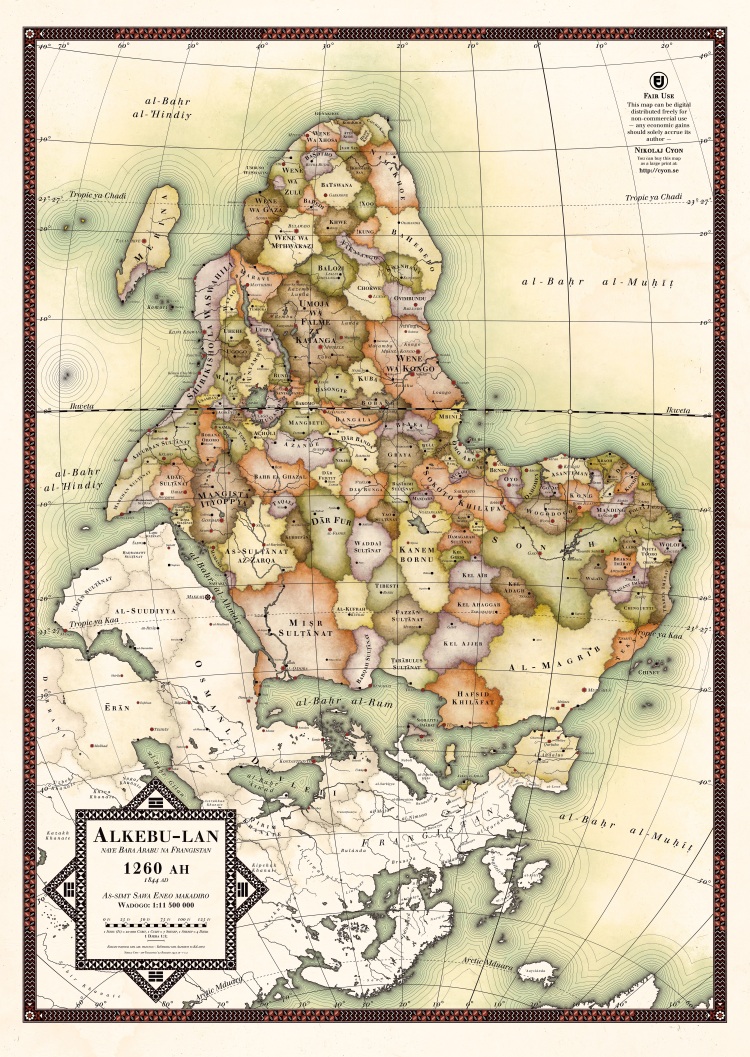
Camarilla Mask™ on the Moorish origins of Freemasonry and 33° Grand Masters

Camarilla Mask™ on the Moorish origins of Freemasonry and 33° Grand Masters
“The failure to integrate indigenous knowledge into the Western educational system adopted in Liberia denies Liberians a potentially expansive knowledge base for solving problems. Indigenous methods of child rearing and socialization, for example, are not sufficiently informing academic studies and training programs relevant to nurturing children; nor has the study of indigenous institutions of governance been incorporated into the study of political science or public administration. As a result, the impact of indigenous patterns of authority relations on the nurturing of children as citizens is hardly ever considered as part of the intellectual inquiry of institutions of learning. The fact that the very concept of citizenship varies from ethnic community to ethnic community has implications for the conception of Liberian citizenship generally. These have not been fully explored. Thus, there is a compelling need to provide a more organized and systematic explanation of local knowledge and practices and to incorporate these into the framework of an appropriate educational and training program if the educational system of Liberia is to serve as an effective agent in nurturing citizens and generating knowledge to enhance development.”
Excerpt from “Beyond Plunder” by Dr. Amos C. Sawyer
Interim President of the Republic of Liberia

Gúlá Má Sálè
Follow this Masktape as it delves into development with the Camarilla Mask™ curator Tékpwfárí Stix El Rá. Consider the changes happening internationally as well as within the Afrotropical region concerning West African Mask most expecially from Liberia and Sierra Leone, respectively.
Research Materials provided by the
aaro.mil
Kofi Annan Foundation
Star and Shield Clothing
Tim Butcher Podcast
University of Liberia.
Encyclopedia of the 16 Tribes®

The map – upside down, to skew our traditional eurocentric point of view – shows an Africa dominated by Islamic states, and native kingdoms and federations. All have at least some basis in history, linguistics or ethnography. None of their borders is concurrent with any of the straight lines imposed on the continent by European powers, during the 1884-85 Berlin Conference and in the subsequent Scramble for Africa. By 1914, Europeans controlled 90% of Africa’s land mass. Only the Abyssinian Empire (modern-day Ethiopia) and Liberia (founded in 1847 as a haven for freed African-American slaves) remained independent.
Alkebu-lan: If Africa Was Never Colonized By Europe
Almost all cough syrups at the grocery store are full of artificial of refined sugars, preservatives, and dyes. with lots of sickness on the rise right now and it being winter, this is an anti-inflammatory and antioxidant rich concoction that can help alleviate coughs with real ingredients! ⠀
⠀
What you’ll need:
⠀
-1/4 tsp. cayenne pepper ⠀
-1/2 tsp. grated ginger ⠀
-1/2 tsp. cinnamon ⠀
-3 tbsp. raw honey ⠀
-2 tbsp. apple cider vinegar ⠀
-3 tbsp. fresh lemon juice ⠀
-1/2 cup water ⠀
⠀
Instructions:
⠀
1. Grate the ginger ⠀
2. Add all of the ingredients into a 12 oz. glass jar, seal it and shake it to mix together well. ⠀
3. Store the jar in the refrigerator for up to a week in a sealed container. ⠀
4. Take 1 tsp. at a time and repeat every couple of hours! ⠀
“The consumption of masktapes embodies an organic essence, akin to the fermenting nature of yeast within the cognitive realm. There exist certain notions that surpass mere conceptualization; these ideas, I sense, embody a vitality, akin to the spirits of our ancestors. The intent behind these masktapes transcends the mere accumulation of information, aiming instead to transform the very fabric of the mind, rendering it receptive to the profound influences of our ancestral lineage.” Tékpwfárí Stix El Rá
Visit Star and Shield Clothing Masktape page for a full collection of masktapes including our latest release the Grebo Masktape Vol. 1.

I. **Maa**: “Maa” represents the concept of truth, justice, and balance. It embodies the idea of living in accordance with moral and ethical principles.
II. **Hu**: “Hu” refers to the divine word or utterance that brought creation into being. It’s often associated with the power of speech and the spoken word’s creative potential.
III. **Sia**: “Sia” represents divine knowledge and perception. It’s associated with wisdom, understanding, and the ability to discern deeper truths.
IV. **Sa**: “Sa” symbolizes the spiritual essence of a person, often referred to as the “divine spark.” It’s the aspect that connects an individual’s soul to the divine realm.
V. **Maat**: “Maat” embodies the concept of truth, balance, and cosmic order. It’s personified as the goddess Maat and is the foundation of Egyptian ethics and justice.
VI. **Heka**: “Heka” refers to the divine power of magic and creative energy. It’s associated with the ability to manipulate natural and supernatural forces for various purposes.
VII. **Sedjem**: “Sedjem” translates to “spirit” or “vital force.” It represents the life force within living beings and was often depicted symbolically in ancient Egyptian art.
These terms offer insights into the complex spiritual and philosophical beliefs of Kemetic people, showcasing their profound understanding of the interconnectedness between the physical and spiritual realms.